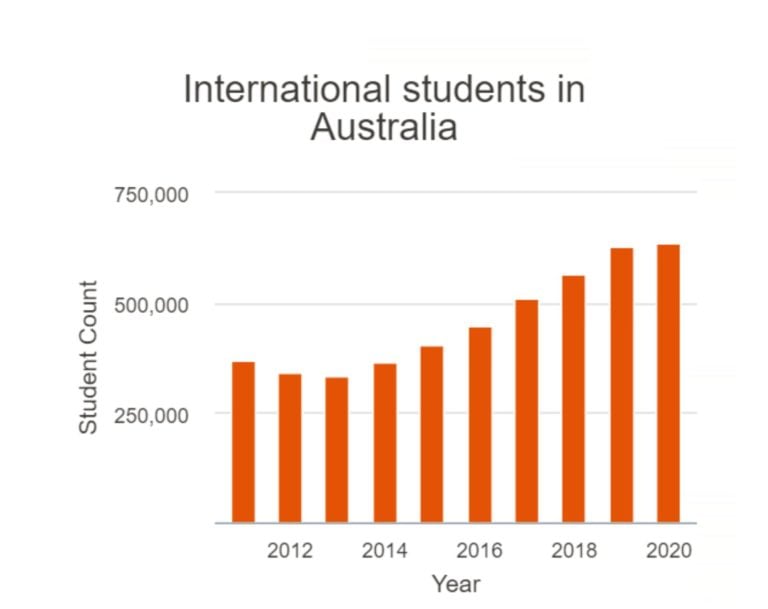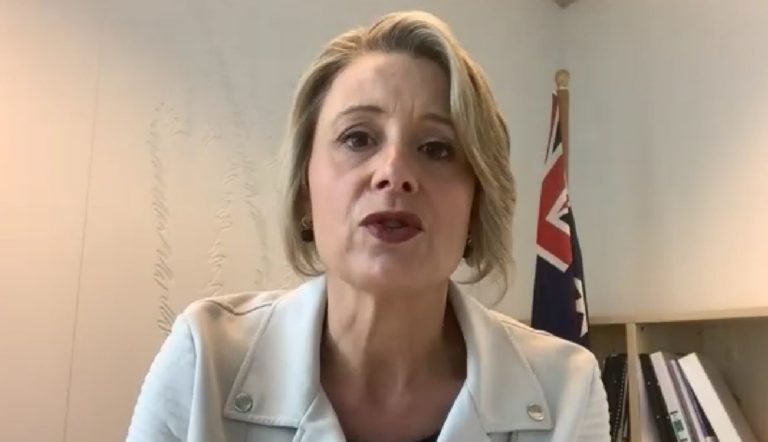Overseas students which have been central to Australia’s immigration success are now left in the lurch, subject to exploitation, as a result of recent policy changes during COVID-19 which are impacting their lives and limiting pathways to permanency.
Labor Senator Kristina Keneally is concerned that visa holders have been made a “second class group of people who live amongst us, who don’t have the same rights to services opportunities, who are not able to have a stake in the long-term future of the country, who cannot plan and begin their lives here if that is what they choose to do”, she said.
“How can we attract overseas students to study in Australia if there’s no clear certainty to gain a job or residency? And this question goes to the heart of a policy change made by the government, which narrows the pathways to permanency for students as well as other temporary visa holders,” she said. “This policy change by the government is really a hoax when it comes to migration,” she said of the two million people in Australia on a temporary visa.

Education and Training Shadow Minister Tanya Plibersek says the situation is terrible. “You see how exploitative the relationships are when times get tough, like when we’ve had lockdowns and these are vulnerable workers just have the tap turned off on their income overnight, with very little support,” she said of the visa holders stood down due to their ineligibility for JobKeeper. “There are queues of people […] trying to get their only hot meal of the day from charities.”
When Neos Kosmos asked Acting Immigration Minister Alan Tudge of assistance available for international students as the COVID-19 crisis carries on, he acknowledged that some are still struggling and advised those who are to “call on their family support and equally call on the universities themselves who have provisions also to support” them.
As far as the government is concerned he outlined a number of changes: “We’ve boosted the […] emergency relief budget by $7 million or $8 million and provided flexibility on their visas so they have opportunities to work even more hours, in some cases, particularly inside of supermarkets which were really struggling, out on the farms, in aged care and some of the health occupations etc to provide opportunities,” he said.
“We’ve provided assistance to international students in the form of allowing them to access their superannuation,” he said.
Immigration Lawyer Joseph Italiano pointed to the government’s superannuation changes as another example of “blatant discrimination” during the pandemic. “The law discriminates between Australians and non-Australians. If I’m an Australian and I’ve lost at least one day a week, I can access super until the end of this financial year and the first three months of the next financial year – $20,000. But if I’m a temporary resident on a 457 visa, I can’t access it unless I’m totally unemployed, not just one day a week, but destitute and I can only access $10,000 this year and not next year,” he told Neos Kosmos. “That’s punitive. What’s the rationale?”
RMIT Professor Kosmas Smyrnios told Neos Kosmos most international students in hist classes have returned to their countries. “They are participating online, however Australia is missing out on the benefits they were bringing to the economy,” he said.

Senator Keneally expressed her concerns. “One of the great benefits of having international students come to Australia is that we get the opportunity for some of the best and brightest in our region to come here and choose to become part of us,” she said. “Now we’re narrowing that, we’re denying that opportunity,” she said, worried about the consequences of the policy.
“That is not who we are as a country. It’s not who we should become as a country. If we are going to remain a country that is the most successful multicultural nation on Earth, we need to, and particularly for international students, increase the pathways to permanency, not narrow them.”